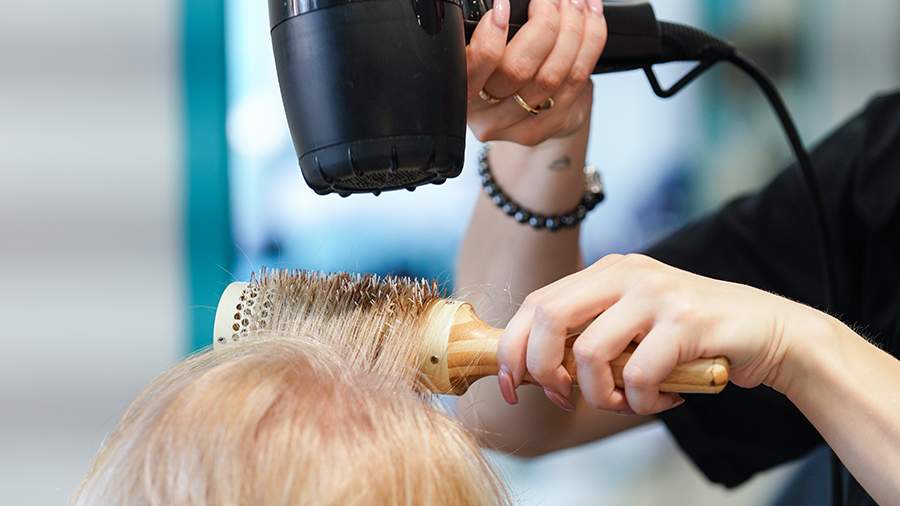Cosmetologist gave tips on protecting hair and scalp from the sun

It's not just the hair that suffers from the sun. Ultraviolet light makes strands dull, brittle, and over—dried, and the scalp becomes irritated and flaky, Natalia Mikhailova, Candidate of Medical Sciences, dermatovenerologist, cosmetologist, and scientific director of MARTINEX, told Izvestia on March 29. The expert gave the Russians some advice.
"Prolonged exposure to the sun weakens hair follicles, dandruff may appear, hair loss may increase, and the risk of skin growths increases," she said.
According to her, the easiest way to protect yourself from ultraviolet radiation is to wear hats (hats, panama hats, headscarves, caps). If a person is relaxing at sea, it is important to cover his head not only on the shore, but also in the water, because it reflects the sun's rays.
"Apply indelible serums, special sprays and oils with UV filters to your hair, which form an invisible film on the surface of the strands, prevent moisture loss and protect your hair throughout the day. They have a light texture, do not stick strands together and do not make them greasy, unlike a dense body cream," Mikhailova advised.
When choosing products, she recommended taking into account the type of hair and skin features. Saturated oils and fluids are suitable for dry and brittle hair, light sprays and indelible conditioners are suitable for thin hair, and for oily skin it is worth looking at water—based formulas. Apply the products again every two to three hours and after bathing.
"In hot regions, the condition of the hair worsens not only due to UV damage, but also due to regular contact with salt water in the sea or chlorinated in the pool. Such water is not good for hair, it makes it drier and more brittle, so it is advisable not to wet your head while bathing. This is often an impossible task, therefore, after sea baths and swimming in the pool, it is necessary to thoroughly wash off salt or chlorine from the hair and scalp, face and body," the cosmetologist emphasized.
The dermatovenerologist explained: while a person is in the water, salt does not have a strong destructive effect on the hair, but on the shore it evaporates and draws out all the moisture from the skin, making the hair even drier.
The expert added that after prolonged exposure to the sun and bathing, mild shampoos with a neutral pH should be used. Once a week or more, you need to make moisturizing masks with keratin, panthenol and oils.
"Coconut oil or jojoba oil forms a protective film on the hair and facilitates combing, herbal decoctions (chamomile, nettle, sage) strengthen the hair shaft, and aloe vera soothes the scalp. But only professional formulations provide full-fledged UV protection," she said.
For styling, you need to choose products with UV filters. If they are not at hand, you can apply a sunscreen spray over the hairstyle. However, styling products that are too dense can increase sebum production and pollute the scalp, so lightweight formulas are preferable in the heat, the cosmetologist noted. In the evening, it is necessary to wash off the remnants of styling, so as not to provoke inflammation.
In addition, according to her, nutrients help to keep hair and scalp healthy. B vitamins strengthen hair structure, vitamin E works as an antioxidant, vitamin C supports collagen synthesis and blood circulation, and iron and zinc prevent breakage and stimulate hair growth. A balanced diet combined with a vitamin and mineral complex reduces the negative effects of sun exposure by about 20-25%.
"Comprehensive protection of hair from the sun includes wearing hats, the use of specialized UV products, balanced nutrition and gentle restorative care after outdoor activities. This approach will preserve the strength, elasticity and shine of the hair even under intense sunlight and make them less vulnerable to an aggressive external environment," Mikhailova concluded.
Earlier, on March 24, Nadezhda Semina, a general practitioner at the First Clinical Medical Center of Dobrograd, told Izvestia that many people experience vitamin deficiency in the spring. This condition is characterized by a deficiency of vitamins and minerals, which can lead to various functional disorders in the body.
Переведено сервисом «Яндекс Переводчик»

